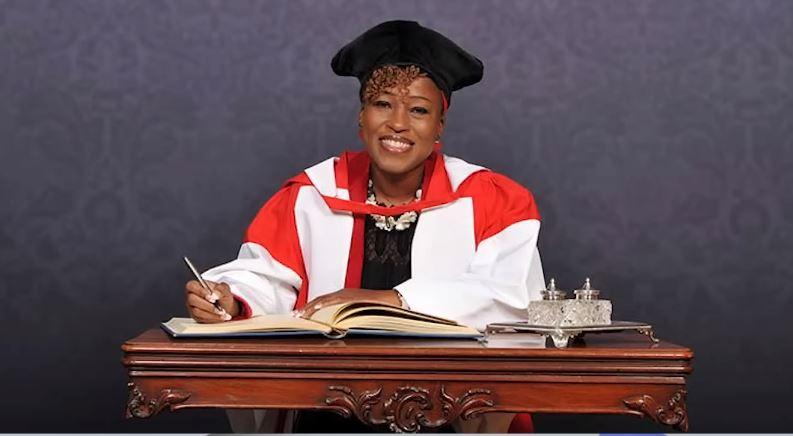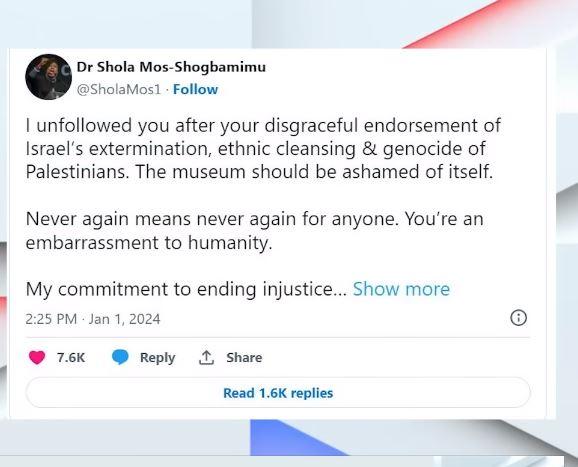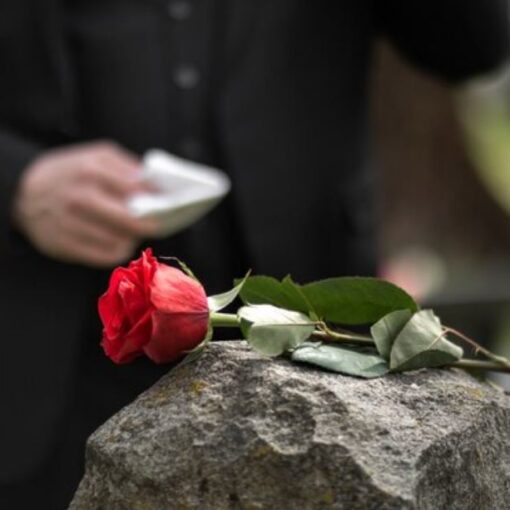
Dr. Shola Mos-Shogbamimu faced severe criticism for her shocking attack on the Auschwitz Museum. The prominent TV panelist and activist labeled the museum as “an embarrassment to humanity” and claimed it should be “ashamed of itself” for allegedly endorsing Israel’s actions in Gaza.
In a bizarre New Year’s Day rant on Twitter (formerly known as X), Dr. Shola responded to news that the Auschwitz Memorial had lost 7,000 followers in December. She accused the museum of supporting Israel’s “extermination, ethnic cleansing & genocide of Palestinians” and asserted that it was an embarrassment to humanity.
These comments, made during the month when Auschwitz Memorial marks the liberation of the concentration camp, sparked outrage. The memorial stands as a symbol of the Holocaust, where an estimated 1.1 million Jewish men, women, and children were killed by the Nazis.
Foreign policy analyst Nile Gardiner and GB News panellist Adam Brooks criticized Dr. Shola, calling for her to show respect and deeming her comments as “filth.” Gardiner expressed his bafflement at the attack on a memorial associated with the Holocaust, a historical atrocity where six million Jews were murdered.

Dr. Shola’s remarks were characterized as vile, arrogant, and shameful by social media users and political commentator Darren Grimes criticized the media for featuring her. Conservative councilor Tom Jones advised her to take a break from the internet after shouting at the official Twitter account of the Auschwitz Museum.
The Auschwitz Memorial had previously expressed solidarity with Israel amid the conflict with Hamas, stating its support for the state’s right to self-defense. Dr. Shola’s tirade against the memorial prompted widespread condemnation, with many emphasizing the importance of showing respect to an institution associated with one of humanity’s darkest periods.
Dr. Shola Mos-Shogbamimu’s attack on the Auschwitz Museum generated significant backlash, with critics denouncing her comments as inappropriate, disrespectful, and lacking an understanding of the historical significance of the Holocaust.
The fallout from Dr. Shola Mos-Shogbamimu’s attack on the Auschwitz Museum extended beyond social media, as prominent figures and commentators joined the chorus of condemnation. The Auschwitz Memorial, a solemn place of remembrance for the victims of the Holocaust, found itself at the center of an unexpected controversy due to Dr. Shola’s assertions.
Political commentator Nile Gardiner, a former aide to Margaret Thatcher, expressed bewilderment at the audacity of attacking an institution associated with the genocide of six million Jews. His call for Dr. Shola to show respect resonated with many who viewed her comments as insensitive, particularly given the upcoming commemoration of the liberation of Auschwitz.
GB News panellist Adam Brooks did not mince his words, labeling Dr. Shola’s comments as “filth.” In the realm of social media, where opinions can quickly escalate into heated debates, Dr. Shola’s remarks were met with a swift and robust counter-response.
The broader discussion also delved into the dynamics of media representation. Darren Grimes, a political commentator, criticized established media outlets for continuing to feature Dr. Shola, questioning the decision to invite her as a panelist given the controversial nature of her statements.
Conservative councilor Tom Jones, in advising Dr. Shola to step back from the internet, highlighted the gravity of her targeting the official Twitter account of the Auschwitz Museum. His remark underscored the need for sensitivity and restraint, especially when engaging with institutions that serve as reminders of historical atrocities.
The Holocaust, marked by the systematic extermination of millions during World War II, is a deeply sensitive subject that demands careful consideration and respect. Dr. Shola’s comments not only sparked outrage for their apparent lack of empathy but also raised questions about the responsibility that comes with being a public figure.
As the backlash against Dr. Shola unfolded, the Auschwitz Museum remained a symbol of the atrocities committed during the Holocaust. The memorial, visited by millions each year, serves as a stark reminder of the consequences of hatred and discrimination, making it an unlikely target for criticism.
Dr. Shola Mos-Shogbamimu’s attack on the Auschwitz Museum not only drew condemnation from various quarters but also ignited a broader conversation about the appropriate conduct when discussing sensitive historical subjects. The episode underscored the importance of approaching such topics with care, acknowledging the gravity of the events they represent.




